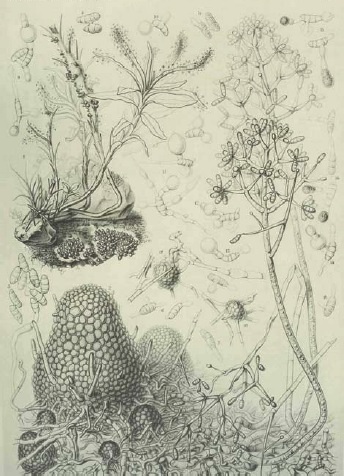Jeffrey Stone <stonej@science.oregonstate.edu>
Course Description:

In ecosystems, fungi often provide essential links between different organisms and trophic levels through their intricately varied interactions with plants and animals, and they perform vital functions in decomposition and nutrient cycling. The fungi are economically important as sources of food products, pharmaceuticals, biological control agents, biofuels conversions, and industrial processes. Fungi are also significant as causes of plant and animal diseases, food spoilage and contamination by mycotoxins, and structural deterioration of buildings.
The fungi, as they have been historically classified, comprise organisms from two distinct evolutionary lineages: the true fungi, or Eumycota, and the Oomycota, which are allied with chrysophyte algae in the separate kingdom Chromista. The true fungi form a distinct, independent branch of the eukaryotes and are the closest relatives of animals among major groups in the tree of life. The organisms of the fungal lineage include the familiar mushrooms and puffballs as well as a fascinating diversity of less well-known microorganisms. These organisms display an extraordinary diversity of ecological interactions and life history strategies.
This course will be a broad survey of the Kingdom Fungi, including unrelated organisms such as the oomycetes that nevertheless have historically been studied with the true fungi. General topics that will be covered include traditional and molecular systematics, physiology, cellular organization, life history strategies, reproduction and dispersal, roles of fungi in ecosystems, fungal symbioses, plant and animal pathogens, predaceous fungi, biological control, fungal food fermentations, plant pathogens, mycotoxins and food spoilage, pharmaceuticals, fungi in biofuels and conversions, fungus-insect and fungus-insect-plant interactions. This is not a course on wild mushroom identification, but field and microscopic characterisitcs for identification of macrofungi will be covered in the overall context of the course.
Laboratories will concern fungal diversity and systematics, mating systems, life cycles, isolation from natural substrates.
Prerequisites:
Bi 214 or 253 or instructor’s consent
